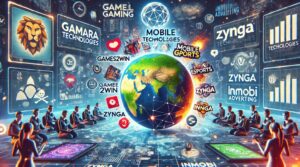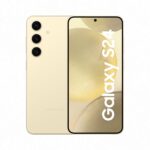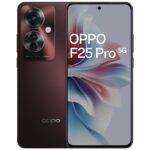The field of conversational artificial intelligence has accelerated rapidly in the past two years. What began as a duel between OpenAI’s ChatGPT and Google’s Gemini has now evolved into a multi-player contest, with innovative entrants like Perplexity AI and Grok reshaping the competitive landscape. Each of these platforms offers unique strengths and caters to different user needs, from creative writing and code generation to fact-based research and real-time information retrieval.
In this article, we will take a deep dive into the capabilities, positioning, and potential of ChatGPT, Gemini, Perplexity AI, and Grok—evaluating their comparative strengths and examining what this means for the future of conversational AI.
The Rise of ChatGPT: Benchmark for Conversational AI
When OpenAI released ChatGPT, it quickly set the standard for what conversational AI could achieve. Powered initially by GPT-3.5 and then enhanced with GPT-4, ChatGPT demonstrated a remarkable ability to engage in natural language dialogue, generate creative content, write code, and solve complex reasoning problems.
Key features that propelled ChatGPT to dominance include:
- Versatility: Capable of shifting between technical, creative, and business-oriented tasks with ease.
- Human-like dialogue: Natural responses that mimic real conversations, making it suitable for personal and professional interactions.
- Ecosystem integration: API availability allowed enterprises to embed ChatGPT into workflows, customer service systems, and productivity tools.
- Customization: The introduction of memory, fine-tuning, and custom GPTs expanded its adaptability for niche use cases.
ChatGPT continues to be viewed as the general-purpose leader in the space, with its balance of creativity, reasoning, and ease of use.
Google Gemini: Multimodality and Ecosystem Power
Google’s entry into the AI race took a major leap forward with Gemini, the rebranded successor of Bard. Gemini’s models—ranging from Gemini Nano for mobile devices to Gemini Ultra for advanced tasks—were designed to integrate seamlessly with Google’s vast ecosystem of services.
Where Gemini stands out:
- Multimodal capabilities: Unlike early ChatGPT versions, Gemini natively combines text, image, and code input and output, enabling richer interactions.
- Device-level integration: With Gemini Nano on Pixel devices and Gemini apps on Android and iOS, users can access AI features directly within their smartphones.
- Research-backed accuracy: Leveraging Google’s search infrastructure, Gemini aims to provide accurate, relevant, and context-aware answers.
- Creative generation: Gemini includes image creation tools embedded directly within the chat, blurring the lines between conversational AI and design platforms.
Gemini’s competitive advantage is its ecosystem integration. By embedding AI across Gmail, Docs, YouTube, and Android devices, Google is positioning Gemini as an everyday digital assistant for both work and personal life.
Perplexity AI: The Research-First Conversational Assistant
While ChatGPT and Gemini battle for mainstream dominance, Perplexity AI has carved out a niche by focusing on accuracy, citations, and research transparency. Unlike models that generate text without disclosing sources, Perplexity prioritizes verifiable information.
Why Perplexity is different:
- Real-time search integration: Responses are powered by live web data, ensuring answers reflect the latest developments rather than outdated training snapshots.
- Citations included in every response: Each claim is backed by sources, giving users confidence in the reliability of the output.
- Optimized for research and analysis: Students, journalists, and analysts benefit from detailed reports, charts, and referenced content.
- Concise and factual: Perplexity avoids the overly conversational tone of ChatGPT, instead focusing on delivering clear, research-backed insights.
For users whose priority is trustworthy, up-to-date information, Perplexity has emerged as the research-grade AI companion. While it may lack ChatGPT’s creativity or Gemini’s multimodality, it dominates in academic, journalistic, and business research contexts.
Grok by xAI: Musk’s Challenger in Conversational AI
Launched in late 2023 by Elon Musk’s xAI, Grok quickly established itself as a controversial yet powerful entrant in the AI market. Initially exclusive to the X (formerly Twitter) platform, Grok expanded into broader use cases with successive iterations, now reaching advanced models such as Grok 4.
Core strengths of Grok:
- Reasoning and problem-solving: Grok excels in scientific, mathematical, and coding tasks, often outperforming competitors in technical benchmarks.
- Real-time knowledge: Deep integration with live search and the X platform allows Grok to provide timely insights into trending events.
- Multimodal features: Similar to Gemini, Grok includes image analysis, voice interaction, and advanced contextual awareness.
- Distinct personality: Marketed as a chatbot with wit and humor, Grok differentiates itself by adopting a more conversational and opinionated style.
However, Grok has also attracted criticism. Its responses sometimes reflect biases aligned with its founder’s views, raising questions about objectivity and neutrality. Despite this, Grok has established itself as a serious challenger, especially in technical and real-time domains.
Comparative Analysis: Strengths and Weaknesses
To better understand the positioning of these four AI platforms, it helps to compare them directly across key dimensions.
| AI Platform |
Key Strengths |
Ideal Use Cases |
Limitations |
| ChatGPT |
Creativity, versatility, human-like dialogue |
Creative writing, code assistance, general queries |
Knowledge limited to training data |
| Gemini |
Multimodal input/output, ecosystem integration |
Daily productivity, visual tasks, mobile assistance |
Less personality, still evolving models |
| Perplexity AI |
Real-time data, citations, factual accuracy |
Academic research, journalism, market analysis |
Less creative, limited beyond research |
| Grok (xAI) |
Advanced reasoning, technical strength, real-time |
Coding, science, current events, trend analysis |
Potential bias, inconsistent neutrality |
Why the Expanding AI Landscape Matters
The evolution from a two-horse race to a four-player contest highlights the diversification of AI applications. Rather than one “winner,” the future of conversational AI will likely be defined by specialization:
- ChatGPT will continue as the go-to for creativity and balanced versatility.
- Gemini will dominate where multimodality and ecosystem integration matter most.
- Perplexity AI will be trusted for fact-based, research-driven tasks.
- Grok will serve users seeking advanced reasoning, coding capabilities, and real-time awareness.
This specialization benefits end-users by offering them the ability to choose the right AI for the right job, much like how people use different apps for messaging, search, and productivity.
The Future of Conversational AI
Looking ahead, we can expect several trends to shape the next phase of development:
- Deeper multimodal interactions – AI platforms will increasingly merge text, image, audio, and video inputs into seamless experiences.
- Trust and transparency – Perplexity’s citation-first model sets a standard that others may be forced to adopt.
- Customization and personalization – Memory, fine-tuning, and role-based personalities will make AI assistants more tailored to individuals.
- Integration with real-world tools – From office software to social media platforms, conversational AI will become embedded into daily workflows.
- Ethical scrutiny – As Grok demonstrates, issues of bias, neutrality, and transparency will play a critical role in shaping adoption.
The future will not be about which model “wins,” but about how each evolves within its domain of strength while addressing user trust and reliability concerns.
Conclusion
The AI landscape is no longer defined by a simple ChatGPT vs Gemini rivalry. With Perplexity AI redefining research-based interactions and Grok challenging benchmarks in reasoning and real-time knowledge, the market has become far more dynamic. Each platform has carved out a unique position: ChatGPT as the creative all-rounder, Gemini as the multimodal ecosystem leader, Perplexity as the trusted researcher, and Grok as the technically advanced disruptor.
For businesses, researchers, and individual users, the key is not to ask which is the best AI overall—but rather which AI is best for the task at hand.







